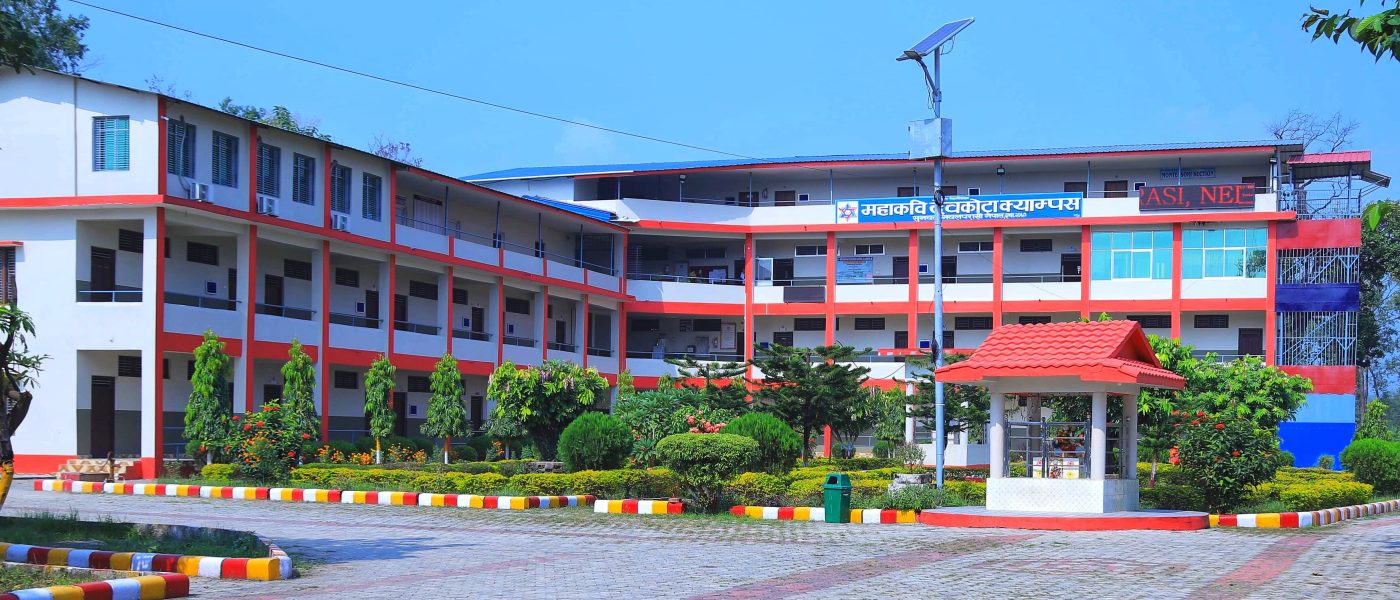Overview
Master of Business Studies (MBS) – Mahakavi Devkota Campus, Parasi
Mahakavi Devkota Campus in Parasi, Nawalpur began offering the Master of Business Studies (MBS) program in 2078 B.S. in response to the growing interest in advanced business education.
This two-year master’s degree, affiliated with Tribhuvan University (TU), is tailored for individuals seeking to enhance their understanding of management and build a career in business, administration, or entrepreneurship.

Duration and Academic Structure
The MBS program spans two academic years, comprising four semesters. It provides a blend of theoretical knowledge and practical insight across multiple fields of management. The coursework is designed to help students develop their decision-making abilities, research skills, and leadership confidence.
Key subject areas include:
-
Business Strategy
-
Financial Management
-
Marketing and Organizational Behavior
-
Economics and Accounting
-
Research and Data Analysis
-
Communication and Entrepreneurship
The final semester includes either a thesis or project work, allowing students to apply what they’ve learned in real-world settings.
What the Program Offers
This course helps students gain a deeper understanding of how businesses operate. They learn to analyze problems, manage teams, and understand the economic and social changes that affect organizations. Some core subjects include:
-
Marketing Management
-
Managerial Economics
-
Organizational Behavior
-
Financial and Managerial Accounting
-
Strategic Management
-
Business Environment in Nepal
-
Entrepreneurship Development
-
Research Methodology
Through group discussions, presentations, and case-based learning, students build practical insights in addition to academic knowledge.
Main Objectives
The MBS program at Mahakavi Devkota Campus focuses on the following goals:
-
Build a solid understanding of business principles and management concepts
-
Prepare graduates for mid- and senior-level roles in companies and institutions
-
Strengthen analytical thinking and problem-solving through business research
-
Help students understand the business environment in Nepal and abroad
-
Support entrepreneurial thinking and planning
-
Encourage leadership in both private and public sectors
Teaching and Learning Approach
The classroom environment promotes interaction and critical thinking. Teachers use case studies, lectures, group work, and research activities to keep the learning process engaging and practical.
Students also take part in:
-
Presentations and reporting
-
Data interpretation and analysis
-
Practical assignments based on real cases
-
Internships and field visits as available
These experiences help students connect theory with practice and prepare them for the challenges they will face in the workplace.
Career Pathways
Graduates of the MBS program are well-prepared for a variety of roles in the business world. Common career options include:
-
Business Executive or Manager
-
Finance Officer or Analyst
-
Marketing or Sales Manager
-
Human Resource Officer
-
Project Coordinator
-
Business Researcher
-
Entrepreneur or Startup Founder
Many students also go on to pursue MPhil or PhD studies, or join government, development, or education sectors depending on their interests and experience.
Who Can Apply
To join the MBS program, applicants must:
-
Hold a bachelor’s degree in management, business, or a related field from a recognized institution
-
Pass the entrance test as prescribed by Tribhuvan University
-
Fulfill any additional requirements set by the campus or the university
Graduates from BBS or equivalent programs are especially encouraged to apply.
Why Mahakavi Devkota Campus?
Located in the heart of Parasi, the campus offers a learning environment that encourages students to think independently and grow professionally. With dedicated faculty members, updated resources, and an emphasis on practical learning, Mahakavi Devkota Campus supports students at every step of their academic journey.
The MBS program at Mahakavi Devkota Campus is a reliable path for those aiming to grow their careers in business, government, education, or entrepreneurship. With a focus on learning by doing and understanding by thinking, students leave with the tools they need to lead, plan, and adapt in today’s changing world.
Contact Mahakavi Devkota Campus's administrative office for detailed information on the MBS course, including fees, scholarships, facilities, counseling, eligibility criteria, etc.

















